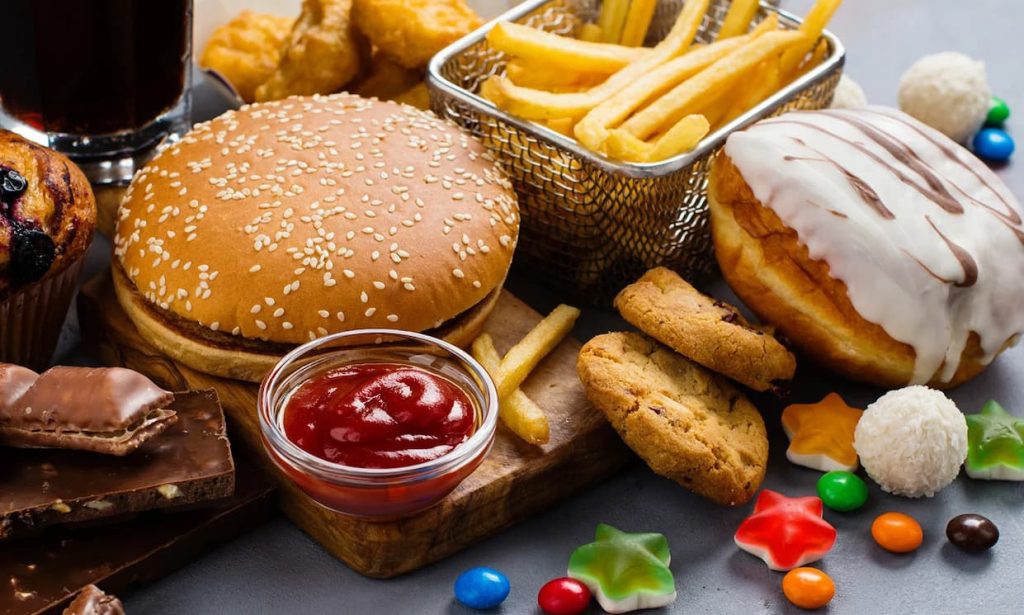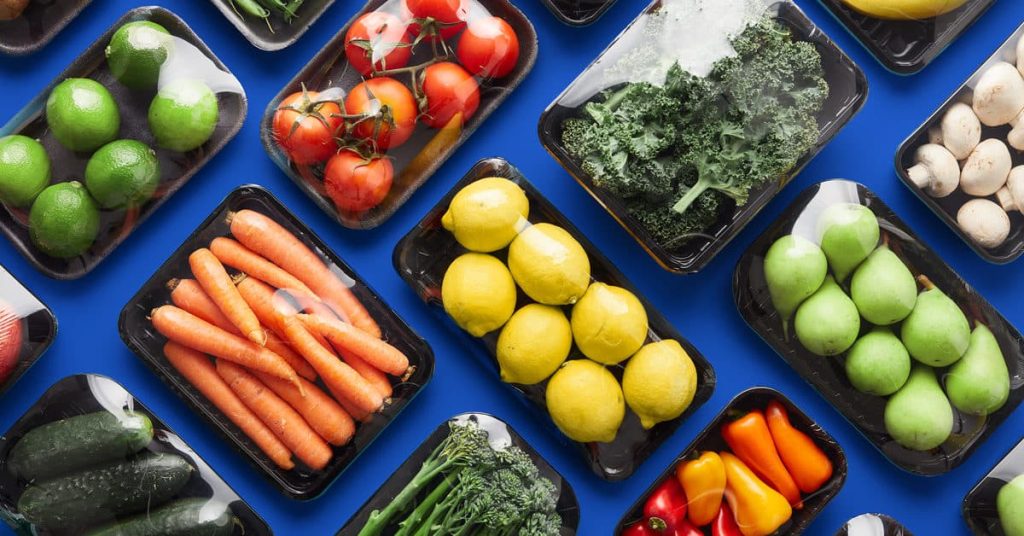You have probably heard about the benefits of eating healthy foods since childhood. Besides the nutritional value of healthy foods, eating right improves your physical outlook and makes you feel good about yourself. While most people are aware of the physical benefits of healthy eating, its contribution to mental health is hardly discussed.
Eating a healthy diet composed of leafy vegetables and whole grains makes you more alert and improves your thinking, attention span, and concentration. Conversely, if your diet primarily consists of junk foods, you may experience fatigue, random mood changes, or even stress and depression.
Table of Contents
Why are processed foods bad for your mental health?
Most junk or processed foods contain large amounts of sugar and flour. Although sugar causes a temporary strike in the feel-good hormone – dopamine, the result usually is a crash in your moods. Unfortunately, a steady diet of junk makes the brain crave more of that instead of healthy foods.

The highly addictive nature of processed food may make it challenging to change your diet for the better. However, it would be best to stop consuming the same so that your brain can stop craving junk food.
The gradual elimination of added sugars and refined carbohydrates in your diet will alter your brain’s physiology. Today, most people consume a lot of junk food, making it one of society’s most significant health impairments.
Who should eat healthy foods?
Eating healthy is a necessity for people of all ages, including children and older people. Although everyone should observe a nutritious diet, people working in the medical field, such as nurses, doctors and surgeons, should prioritize this. For instance, the benefits of eating healthy food on Nurses mental health cannot be overstated. Nurses are needed to be at their absolute best to administer quality patient services.

Taking care of terminally ill patients daily can have a toll on your emotional and mental well-being. Fortunately, watching what you eat may help you achieve mental stability. Nurses who eat healthy foods are more alert, meaning they can quickly notice whenever there is a problem. As a nurse, prioritizing your mental wellness by watching what foods you eat can help you have a better relationship with your patients and colleagues.
Healthy foods that you can include in your diet
- Fiber-rich foods. They include foods such as vegetables, whole grains, fruits, and beans. Besides preventing constipation, these foods facilitate the gradual absorption of glucose in your body. This helps you avoid having highs and lows during the day due to crashes and sugar rashes. Eating small portions of such foods keeps your blood glucose levels steady throughout the day.
- Protein-rich foods. Foods such as eggs, lean meat, cheese, soy products, legumes, seeds and nuts contain amino acids which help your brain control thoughts and emotions. Having the impression that all fat is unhealthy can be wrong. This is because fatty acids such as omega-3 are essential for your brain functioning.
- Folate. Foods rich in folates such as liver, citrus fruits, beans, and green vegetables facilitate dopamine production in your body. Insufficient folate in your body increases your risk of feeling depressed.
How can I start eating right?
Attaining a well-balanced meal should not be an uphill task if you pay attention to what you eat. Besides being aware of your foods, listen to how you feel when eating certain foods or snacks. Keeping the records of your meals for the entire week might be challenging.
However, your specialist may recommend keeping a food journal to understand your eating habits. While filling up your notebook, be sure to include where and when you ate. This will give you more insight into your patterns and may help you refrain from certain places at certain times if you are among the people who overeat when stressed, journal down whenever the urge to eat comes up. Instead of reaching for a bag of fries, put in words what you are craving for, to help suppress the urge for a poor diet. Scheduling small portions of meals during the day may be helpful for those who eat less when stressed.
Eating right does not have to be boring. You can develop exciting recipes for your legume or vegetables to make healthy eating fun and tasty.




